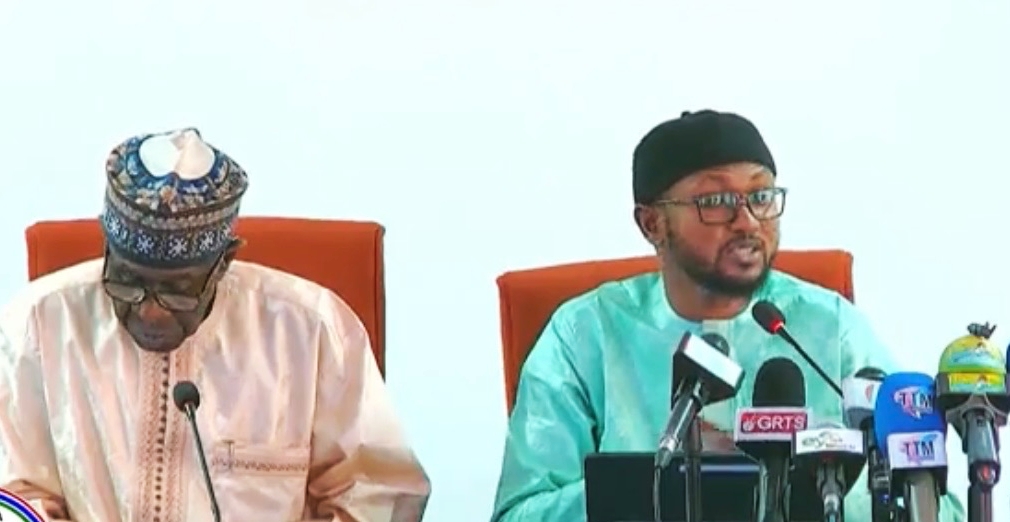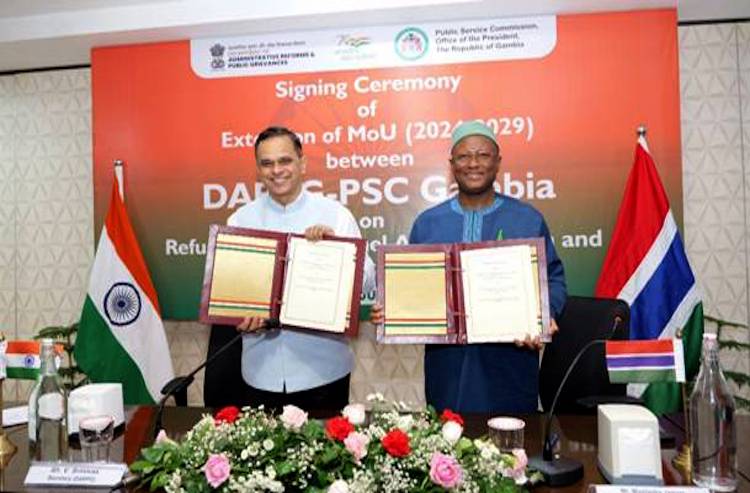Gambiaj.com – (NEW DELHI, India) – India’s Department of Administrative Reforms and Public Grievances (DARPG) and the Public Service Commission, Office of the President, Republic of the Gambia, have extended their Memorandum of Understanding (MoU) on ‘Refurbishing Personnel Administration and Governance Reforms’ for an additional five years. This extension will be effective from July 8, 2024.
The original MoU, signed on July 8, 2021, laid the foundation for a three-year partnership aimed at improving governance practices in both countries. The extension signifies a continued commitment to this collaboration, underscoring the shared goal of promoting transparency, accountability, and efficiency in public administration.
The signing ceremony, held at the Civil Services Officers’ Institute (CSoI) in New Delhi, saw the participation of key dignitaries from both nations. Shri V. Srinivas, Secretary, DARPG, signed on behalf of India, while H.E. Mr. Mustapha Jawara, High Commissioner of the Gambia, represented the Public Service Commission, Office of the President, Republic of the Gambia. The event, conducted in a hybrid mode, was graced by several senior officials, including Mr. Babucarr Suwareh, Chairman of the Public Service Commission of the Gambia, and H.E. Shri Dinkar Asthana, Ambassador of India to Senegal and concurrently accredited as High Commissioner of India to the Gambia.
The MoU focuses on the exchange and implementation of best practices in administrative reforms through various initiatives, including good governance webinars, research publications, and capacity-building programs. Key areas of cooperation include improving performance management systems in government, implementing contributory pension schemes, and advancing e-recruitment processes.
A Joint Working Group on Public Administration and Governance Reforms has been established under the aegis of the MoU to draw up the roadmap for bilateral collaboration. During the ceremony, the Indian delegation highlighted Prime Minister Narendra Modi’s vision of “Maximum Governance—Minimum Government,” emphasizing the importance of digital empowerment and institutional transformation.
This partnership aims to drive significant improvements in public service delivery in both countries, leveraging the strengths and experiences of each other to achieve more effective and efficient governance.










